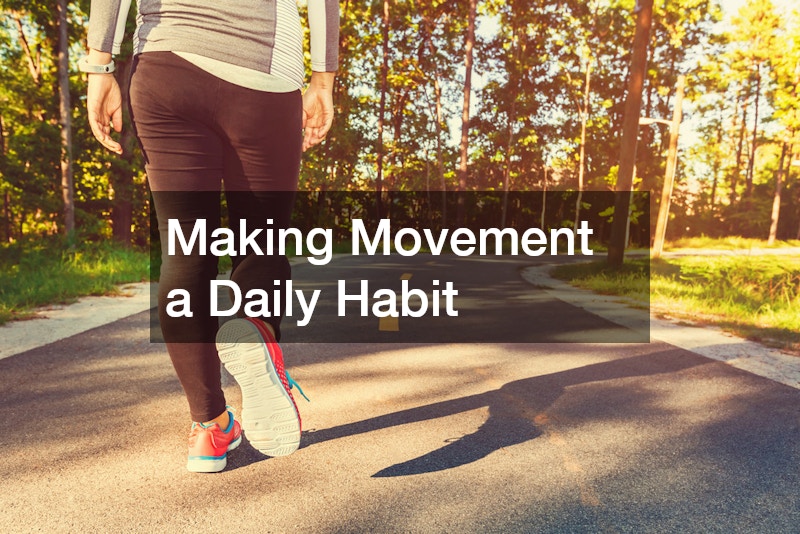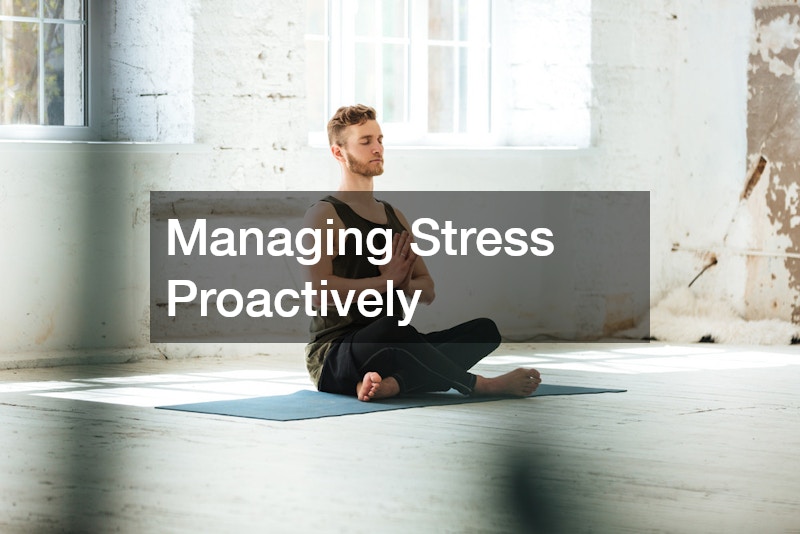Whole-body wellness is not just a trendy phrase but a comprehensive approach to health. It encompasses the nurturing of the mind, body, and spirit in a manner that is sustainable and mindful. This article explores what it truly means to take care of yourself by delving into various components of whole-body wellness.

Nourishing Your Body With Intention
Adopting a wholesome approach to nutrition is an essential pillar of wellness. To nourish your body with intention, it’s crucial to incorporate healthy grocery lists into your daily life. These lists should emphasize fresh fruits, vegetables, lean proteins, and whole grains, all key components of a balanced diet.
When you shop thoughtfully using healthy grocery lists, you are making a commitment to your body’s overall well-being. Intentional grocery planning can help you avoid processed foods that are often laden with hidden sugars and unhealthy fats. This approach not only benefits your physical health but also improves mental clarity and energy levels.
Consulting with a digestive health specialist can provide insights into how your food choices impact your digestive system. These experts can help tailor your diet to support your unique nutritional needs. Ultimately, a carefully curated diet is a vital step towards achieving whole-body wellness in your life.
Prioritizing Restorative Sleep
Quality sleep is a fundamental component of whole-body wellness, affecting both mental and physical health. Sleep plays a key role in repairing and rejuvenating the body, and a lack of it can lead to various health issues. Engaging with a back pain specialist can provide strategies to improve sleep posture, which in turn enhances sleep quality.
Restorative sleep is crucial for managing stress and emotional well-being. It is during deep sleep cycles that the brain processes emotions and consolidates memories. Prioritizing sleep as part of your wellness routine ensures you wake up refreshed and ready to meet your goals with clarity and focus.
Chronic sleep deprivation may necessitate the assistance of health professionals. Sleep specialists can offer personalized advice and interventions to help achieve better sleep quality. Incorporating sleep-friendly habits, such as establishing a consistent bedtime routine, can significantly contribute to your journey toward achieving your goals.
Supporting Digestive Health Through Daily Choices
A well-functioning digestive system is integral to whole-body wellness, serving as the body’s powerhouse for energy and nutrients. Engaging with a digestive health specialist can offer valuable insights into personalized dietary needs and gut-friendly practices. By making mindful food choices, you can significantly impact your digestive health positively.
Incorporating fiber-rich foods into your healthy grocery lists can enhance digestion and prevent common issues like constipation and bloating. Probiotics, found in foods like yogurt and fermented vegetables, support a healthy gut microbiome, a critical component for digestion. Understanding how different foods affect your digestive tract is key to preventing discomfort and promoting wellness.
Managing stress is also important for digestive health as the gut-brain connection influences how well your digestive system functions. Practices like meditation and mindfulness can alleviate stress-related digestion issues. These daily choices ensure your digestive system remains robust and efficient, supporting overall health.

Making Movement a Daily Habit
Regular physical activity is essential for promoting whole-body wellness and should be an integral part of anyone’s routine. By utilizing a pain management service, individuals with chronic discomfort can find suitable exercise forms that accommodate their needs.
Exercise not only contributes to physical fitness but also plays a significant role in mental health. Endorphins released during physical activity can drastically improve mood and reduce symptoms of depression and anxiety. Making a point to move every day, whether through structured workouts or leisurely activities like walking, is crucial to maintaining balance.
Your local gym can assist in remaining accountable for regular exercise. Furthermore, community fitness programs can offer opportunities to engage in different and fun activities that animate your routine. Remember, the consistency of movement is more important than intensity, so choose activities that you enjoy and can sustain.
Engaging in Sports That Make You Happy
Engaging in sports that bring joy can have profound effects on your wellness journey. Playing sports like pickleball not only provides physical exercise but also fosters social connections and improves mental well-being. When you find a sport that you genuinely enjoy, it becomes easier to make it a regular part of your routine.
Many local communities have access to facilities such as a pickleball court, where individuals can engage with others in fun and competitive play. This social interaction is a key aspect of emotional wellness, providing a support system and an outlet for stress. Additionally, playing sports regularly can improve cardiovascular health and increase energy levels.
To maintain interest and motivation, explore a variety of sports until you find what resonates most with you. Remember, the goal is to find activities that enrich your life and support your health. Participating in sports you’re passionate about can lead to lifelong habits that support holistic wellness.
Tuning Into Your Mental Health
Caring for your mental health is as critical as physical health when pursuing whole-body wellness. Understanding and managing mental health allows for a more balanced, fulfilling life. Accessing healthcare benefits for employees, such as counseling services, can provide essential support for mental health challenges.
It is vital to routinely check in on your emotional state and seek help if needed, whether through therapy, mindfulness, or nurturing hobbies. Mental wellness encompasses self-awareness and the ability to cope with stress, both crucial for overall health. Addressing mental health is not a one-time solution but a continuous effort supported by various tools and resources.
Building emotional resilience by practicing gratitude and self-compassion aids in overcoming various life challenges. Additionally, practices like meditation and yoga help in tuning into your mental health and promote a greater sense of peace and well-being. Prioritizing your mental health fosters a harmonious and healthy life.

Finding the Right Gym for Your Needs
Choosing the right gym that meets your specific needs can greatly enhance your journey to whole-body wellness. A gym membership management system often makes it easier to access diverse classes and amenities, allowing for a more tailored fitness experience. It’s important to consider factors such as location, facilities, and class offerings when selecting a gym.
Participating in fitness activities that excite and motivate you will drive long-term commitment to your fitness goals. Whether it’s yoga, weightlifting, or spin classes, the right gym provides resources and support crucial for your well-being journey. Ensuring that your gym aligns with your lifestyle and fitness aspirations is key to sustained engagement.
A supportive environment, like a friendly gym community, encourages accountability and makes workouts more enjoyable. Engaging with personal trainers available at the gym can provide guidance tailored to your health goals.
Building Strong Emotional Connections
Strong emotional connections with others are fundamental to a fulfilling and healthy life. Whether it’s family, friends, or community networks, these relationships provide support and enrich life experiences. Prioritizing these connections can lead to enhanced emotional health and a greater sense of belonging.
A key aspect of maintaining these bonds is effective communication and mutual support. This fosters a positive environment that benefits both mental and emotional whole-body wellness. These exchanges can serve as a buffer against stress and aid in achieving your health goals by fostering a nurturing support system.
Investing time in relationships can be as simple as regular check-ins or shared activities. Participating in social gatherings or community events can also foster new relationships and enhance emotional wellness. Remember, the quality of the connections often matters more than the quantity, providing depth and understanding in your life.
Creating a Balanced Work-Life Routine
A balanced work-life routine is essential for achieving sustained well-being and fulfillment. Striving for equilibrium between professional obligations and personal life can mitigate stress and prevent burnout. Utilizing time management strategies and prioritizing tasks ensures that you can dedicate time to both work and leisure.
Consider seeking assistance through a health consultant to improve work-life balance by setting realistic goals and boundaries. This balance allows you to allocate time towards activities that align with your wellness goals, such as exercise, relaxation, and family. Ensuring adequate time for both work and personal interests is an important strategy for whole-body wellness.
Local weight loss programs can also fit into this balanced routine, offering structured support for those looking to achieve specific health objectives. By integrating wellness into your daily schedule, you create an environment that supports both personal and professional growth. Remember, a harmonious work-life balance is pivotal for long-term whole-body wellness, health, and happiness.

Managing Stress Proactively
Stress management is critical in managing overall wellness and should be addressed proactively. Chronic stress is a risk factor for numerous health conditions, and managing it is crucial for mental and physical health. Engaging with a health consultant can provide personalized strategies to manage and reduce stress effectively.
Practicing mindfulness techniques such as meditation and breathing exercises can significantly reduce stress levels. Regular physical activity and engaging in enjoyable hobbies also serve as effective tools against stress. Prioritizing stress management is a commitment to your health goals.
A proactive approach to stress involves identifying stressors and creating action plans to minimize their impact. Incorporating relaxation techniques into your daily routine can provide immediate relief and long-term benefits. By managing stress, you lay a foundation for overall wellness and a more resilient self.
Embracing Preventive Healthcare
Preventive healthcare embodies the philosophy of taking preventive steps to avoid illness, rather than waiting for it to occur. Regular health screenings and vaccinations are critical components of preventive healthcare and whole-body wellness. Embracing these measures is a proactive stance towards achieving your health goals.
Consultations with healthcare professionals allow for early detection and management of potential health issues. Preventive measures not only save time and resources in the long run but enhance quality of life and longevity. By prioritizing preventive healthcare, you set a foundation for consistently maintaining your health.
Staying informed and educated on personal health risks empowers individuals to make informed choices. Accessing resources and guidance from health consultants can further enhance understanding and implementation of preventive strategies. This commitment to prevention is a cornerstone of comprehensive whole-body wellness.
Connecting With Nature Regularly
Spending time in nature offers numerous benefits, both physically and mentally. Engaging with the natural world can reduce stress and enhance mental clarity. Regular interactions with nature have been shown to improve mood and foster a greater sense of peace and contentment.
Outdoor activities increase physical fitness while providing relaxation and an opportunity to disconnect from daily stressors. Hiking, gardening, or simply enjoying a walk in a park can drastically benefit health and well-being. Prioritizing time in natural settings aligns with achieving health goals by enhancing overall quality of life.
The connection to nature naturally encourages a more active lifestyle and better health habits. Planning regular “nature breaks” can revitalize your energy levels and improve mental focus. By incorporating nature into your routine, you support a holistic approach to wellness, enriching mind, body, and spirit.

Listening to Your Body’s Signals and Needs
One of the most overlooked aspects of whole-body wellness is learning how to truly listen to your body. Our bodies are constantly sending us signals—hunger, fatigue, tension, discomfort, and even joy—all of which provide valuable insight into how we’re doing physically, mentally, and emotionally. When we ignore these cues, we risk pushing ourselves into burnout, chronic stress, or illness. By tuning in and responding with care, we begin to build a more intuitive and sustainable approach to health.
For example, if you’re feeling unusually sluggish, it might be your body asking for more rest or a change in your nutrition. Digestive discomfort could signal that a certain food doesn’t agree with you, or that your body needs a slower, more mindful eating routine. Emotional cues like irritability or anxiety might point to unmet needs for connection, boundaries, or downtime. Instead of powering through or dismissing these experiences, take a moment to check in with yourself. What’s your body asking for today? This kind of internal communication fosters self-trust, helping you make choices that support every aspect of your wellbeing—from gut health to energy levels to emotional balance.
Whole-body wellness is an ongoing journey that encompasses various aspects of physical, emotional, and mental health. By prioritizing nourishing food choices, restorative sleep, regular exercise, mental health awareness, and preventive healthcare, you commit to a healthier and more fulfilling life. Each component of this comprehensive approach contributes to a balanced life, ensuring sustained well-being and a greater sense of peace.
